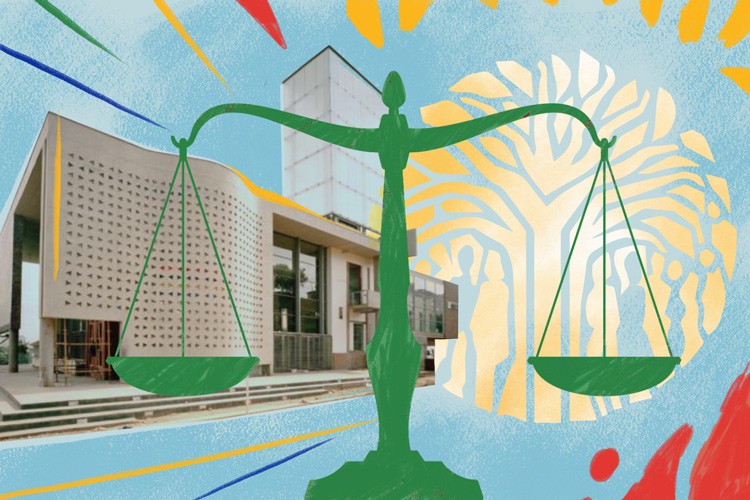
16 November 2021
Ilustration: Lisa Nelson
On Monday, the Supreme Court of Appeal (SCA) heard an appeal by the City of Cape Town against a Western Cape High Court ruling that prohibits it from conducting evictions and shack demolitions without a court order during the national state of disaster.
The appeal was heard by judges Rammaka Mathopo, Ashton Schippers, Caroline Nicholls, Yvonne Mbatha and Nolwazi Mabindla-Boqwana.
In 2020, the SAHRC, the Housing Assembly and Bulelani Qolani, whose eviction from his shack by City officials while naked was widely covered in the media, obtained a court order.
They had sought relief in two parts: Part A, an interdict against the evictions and demolitions that took place without a court order during the national state of disaster; and Part B, a declaration of the common law principle of counter-spoliation (a legal remedy which allows a person to forcibly re-take possession of property unlawfully taken from them) as unconstitutional.
The relief sought in Part B was heard before the Western Cape High Court in November 2021 and judgment was reserved.
But the Western Cape High Court granted an interim interdict for Part A in August 2020. The court ordered that the City could not evict people or demolish any structure even if unoccupied without a court order. It also ordered that the City should execute an eviction in a manner that upholds the dignity of those being evicted. It further prohibited the use of excessive force or the confiscation of their personal belongings.
The City was also interdicted from adjudicating and awarding a tender for “demolition of illegal and informal structures” in the Cape metropole.
In its appeal, Advocate Sean Rosenberg, for the City, argued that the requirements for granting the interdict had not been met. He also said the interdict “went significantly beyond” what was sought by the SAHRC.
Rosenberg said the City only gives instruction to dismantle a structure without court supervision in circumstances where there is no doubt that the structure is unoccupied.
“The order that was granted was manifestly overboard and we deal with the consequences of that,” he said. “The court had no regard to the City’s constitutional obligation. It paid little to no regard to even consider the extent to which that [order] would intrude on the City’s executive command.”
Rosenberg said the City is obligated within its municipal limits to protect property that is earmarked for housing and for the roll out of its housing programmes.
“The court was required to consider the impact of unlawful occupation and the City’s ability to give effect to its constitutional obligations before granting the interdict,” he told the SCA.
He said the high court failed to consider that by interdicting the City from adjudicating the tender to demolish illegal and informal structures, the City’s ability to ensure that unlawful occupation of land does not take place would be “severely undermined which in turn would have the effect of subverting the rule of law and undermining the City’s ability to ensure that housing is provided on a planned basis”.
Rosenberg also said, “The would-be occupier is now in a position – on the basis of the interdict that was granted – to take advantage of the situation that a structure can be partially erected with no form of occupation at all, and nonetheless court supervision is required.”
The City asked the SCA to set aside the interim interdict in Part A of the matter.
Judgment was reserved.